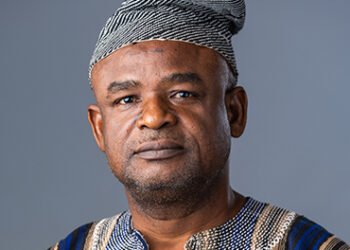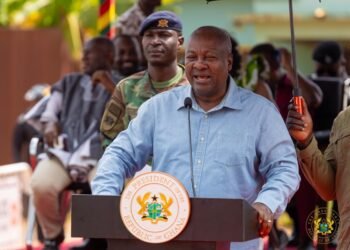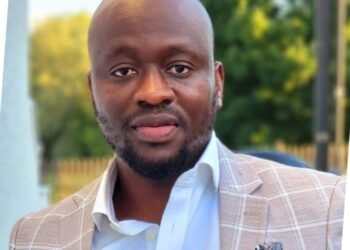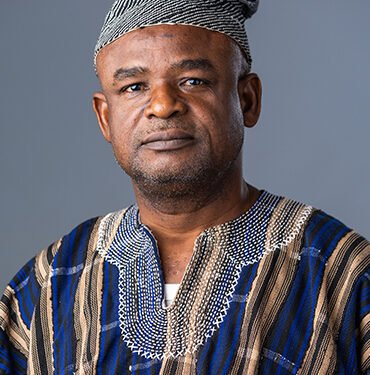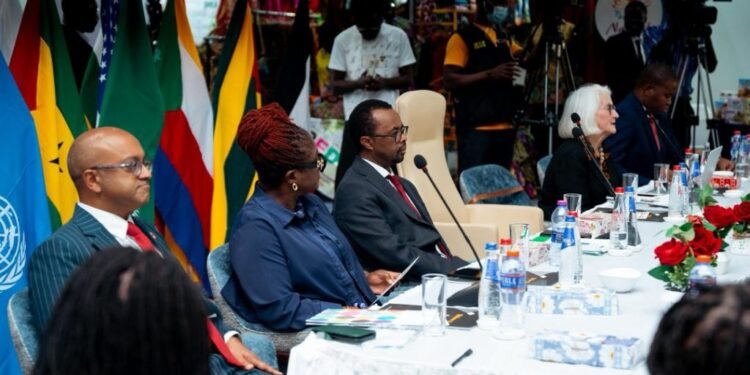A CDD-Ghana Fellow, Dr. Hene Aku Kwapong, has called for a rethinking of Ghana’s constitutional framework to eliminate institutional overlaps and create a system that better integrates traditional authority, professional expertise, and regional representation.
Delivering a public lecture organized by CDD-Ghana on the theme “Beyond the Text: Making Ghana’s Constitution Deliver Democracy”, Dr. Kwapong proposed the establishment of a new “Senior House” that would serve as a unifying structure for national oversight and policy review.
In his lecture, Dr. Kwapong drew attention to what he described as “overlapping structures” within the governance system. With 261 local authorities, 16 regional houses, and more than 300 traditional councils, he argued that the existing arrangements were confusing for citizens and often duplicative.
“I live in Koforidua, and I honestly cannot tell what the traditional council is doing for the town, or what the regional house adds,” he said, noting that the proliferation of institutions consumes resources without delivering clear value to communities.
He suggested that much of this overlap reflected a failure to think of governance as a coherent system. Instead, he observed, the country has developed a habit of creating new funds, councils, and agencies without integrating them into a structured whole.
“We end up duplicating, duplicating, duplicating,” he remarked, citing examples such as the creation of multiple funds—sovereign funds, infrastructure funds, mineral funds—each introduced in isolation but rarely coordinated as part of a national strategy.
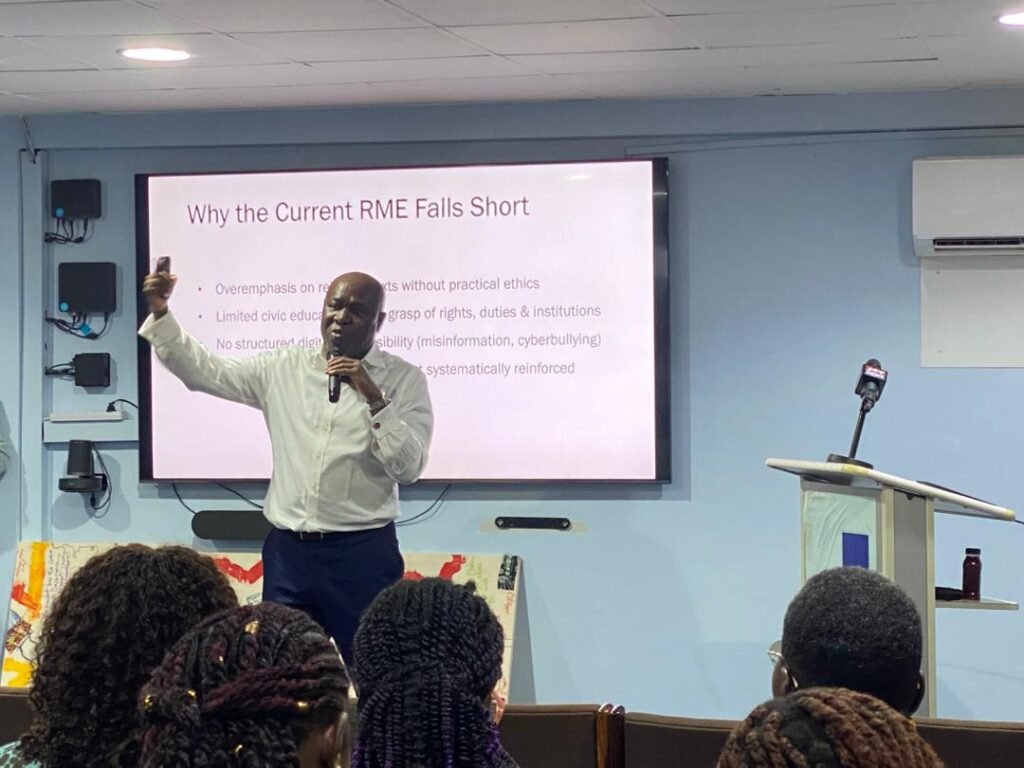
Senior House
Against this backdrop, Dr. Kwapong introduced the idea of a Senior House—a body that would replace both the Council of State and the National House of Chiefs, while absorbing some of the functions of regional and traditional authorities.
According to him, this body would be made up of traditional leaders, distinguished professionals, and regional representatives, forming a national advisory structure that works directly with Parliament.
“The Senior House would not be another layer of bureaucracy. It would be a platform where the wisdom of traditional leaders, the expertise of seasoned professionals, and the perspectives of regional representatives come together to review legislation, oversee policy direction, and provide crisis advisory.”
Dr Hene Aku Kwapong
In his view, such an institution would ensure that laws passed by Parliament receive wider societal input before implementation, thereby increasing both legitimacy and accountability.
Drawing comparisons to the United Kingdom’s House of Lords, Dr. Kwapong emphasized that Ghana could design its own model rooted in its traditions and democratic needs. He noted that while some Lords in the UK inherit seats, many are appointed based on professional distinction and contribution to society.
Ghana, he suggested, could similarly appoint respected chiefs, academics, business leaders, and civil society figures who have “lived and delivered” in their respective fields. “We often ask how to use people like the late Kofi Annan, or others who have distinguished themselves. A Senior House would provide that space,” he said.

Solving Parliament’s Inefficiencies
The proposal, he argued, would also address what he sees as inefficiencies in Parliament’s current processes. Recalling his own experience working on an asset management platform for the legislature, Dr. Kwapong said he had encountered significant disinterest and fragmentation within the system.
“I found myself chasing members and committees, trying to get attention for a proposal that could have improved accountability,” he recounted. The initiative, though eventually sent to the Finance Committee, never came out for consideration.
For him, the problem was not individual negligence but systemic design. “We have not structured our society to harness the intrinsically human elements that build a good society,” he said. In his view, a Senior House could act as a second layer of review, preventing important initiatives from being lost in bureaucratic inertia and ensuring that national resources are managed transparently.
Beyond oversight, Dr. Kwapong suggested that the Senior House could play a crucial role in public and regional coordination. He observed that the current role of regional ministers was unclear and often confused citizens.

A restructured system, he argued, should provide a clear representation of the president in the regions while giving communities a voice through regional representatives in the Senior House. “We need to build the country from the ground up, and that requires a governance structure that makes sense to the people,” he said.
Dr. Kwapong acknowledged that his proposal was “challenging” but insisted it was necessary if Ghana’s constitutional democracy is to deliver tangible outcomes. He stressed that the conversation must go beyond textual amendments to the Constitution and instead focus on systemic reforms that address practical governance problems.
“Our Constitution should not just be a legal document; it should be a living framework that structures society in a way that produces accountability, responsibility, and collective progress”.
Dr Hene Aku Kwapong
Culture of Collective Responsibility
At the heart of his argument was a call for Ghana to cultivate a culture of collective responsibility. He noted that the proliferation of institutions and funds without accountability has bred cynicism among citizens, who often see state initiatives as opportunities for personal gain rather than communal development.
A Senior House, he contended, could help reset this mindset by institutionalizing a culture where traditional authority, professional expertise, and democratic representation are bound together in service of the common good.

The lecture, part of CDD-Ghana’s ongoing dialogue on constitutional reform, highlighted the urgency of confronting the gap between Ghana’s constitutional text and the realities of its governance practice.
For Dr. Kwapong, bridging this gap requires both structural innovation and cultural change. “We must design our institutions with an appreciation of who we are as human beings and as Ghanaians,” he concluded. “Only then will our Constitution deliver the democracy it promises.
READ ALSO: Lands Minister Touts Ghana’s Gold and Critical Mineral Potential to Investors




